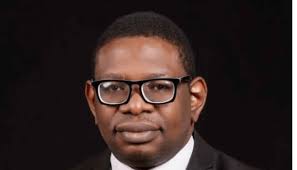A call to action has been issued to Nigerian civil servants, urging them to take proactive steps towards securing their financial future by embracing voluntary contributions to their Retirement Savings Accounts (RSAs). This appeal, made by Mr. Afolabi Folayan, Executive Director, Technical, at Access ARM Pensions, emphasizes the importance of supplementing mandatory pension deductions with consistent, even small, voluntary contributions to build a robust financial safety net for retirement. Folayan’s address, delivered at the International Civil Service Conference in Abuja, centered on the theme of building financial resilience for the future of the Nigerian civil service. He stressed that retirement planning should not be limited to statutory deductions, advocating for a shift in mindset towards a more proactive and personalized approach to retirement savings. The core message is that even small contributions, as little as N1,000, made consistently over time, can significantly impact long-term financial security, thanks to the power of compound interest.
Folayan highlighted several critical challenges faced by civil servants as they plan for retirement. These include the erosive effects of inflation and currency depreciation, which diminish the purchasing power of savings over time. He also pointed to the widespread lack of adequate financial literacy, which hinders informed decision-making regarding personal finance and retirement planning. Furthermore, he acknowledged the increasing financial burdens placed on retirees, including rising healthcare costs and ongoing family responsibilities. In light of these challenges, Folayan presented voluntary top-ups to RSAs as a simple yet effective strategy to mitigate future economic shocks and build a more secure financial foundation for retirement. While acknowledging the significant progress made by the Contributory Pension Scheme, which currently holds over N23 trillion in assets, Folayan also cautioned against over-reliance on government securities, suggesting that their long-term yields may not keep pace with inflation.
The traditional concept of retirement as a period of passive withdrawal from active life is no longer relevant, Folayan argued. Modern retirement is characterized by dynamism, with retirees often taking on new roles as caregivers, mentors, community leaders, and even entrepreneurs. They continue to face financial pressures, including healthcare expenses and family obligations, and often desire to remain actively engaged in contributing to society. Therefore, the pension system must adapt to these evolving realities, moving beyond simply providing basic financial security to supporting a more active and fulfilling retirement experience. This requires a shift in focus towards providing retirees with the resources and support they need to navigate the complexities of modern retirement and achieve their individual goals.
To achieve this transformation, Folayan called for greater collaboration between pension funds and employers in developing integrated retirement solutions. He proposed the establishment of financial wellness hubs that would offer practical tools and resources, including budget planning assistance and personalized retirement planning guidance. These hubs would serve as centralized points of access for civil servants seeking to enhance their financial literacy and make informed decisions about their retirement savings. He also advocated for health partnerships that would provide access to affordable medical care, including critical illness coverage, recognizing the significant financial burden that healthcare expenses can place on retirees. Furthermore, he suggested the development of accessible mortgage schemes tailored to the specific income profiles of civil servants, addressing the need for affordable housing options in retirement.
Leveraging technology is crucial to empowering contributors and enhancing their engagement with their retirement savings, Folayan emphasized. He proposed the development of user-friendly mobile platforms that would provide convenient access to essential information and tools. These platforms would include features such as pension growth simulators, allowing users to project the potential growth of their savings based on various contribution scenarios. Life-stage guidance tools would offer personalized advice and resources tailored to the specific needs and circumstances of individuals at different stages of their careers. Biometric login features would enhance security and protect sensitive financial information. Finally, real-time transparency on account balances, fees, and investment performance would empower contributors to make informed decisions and hold their pension providers accountable.
Folayan concluded his address with a powerful call to action, urging stakeholders to choose between maintaining a system that merely meets minimum requirements and building one that truly honors the dignity and service of civil servants. He envisioned a system that not only fosters trust in public service but also drives financial inclusion and accelerates the nation towards long-term economic resilience. This vision requires a fundamental shift in perspective, moving beyond a narrow focus on financial security to embrace a broader understanding of retirement as a dynamic and fulfilling phase of life. By empowering civil servants to take control of their financial futures and providing them with the resources and support they need to thrive in retirement, Nigeria can build a more secure and prosperous future for all its citizens.


